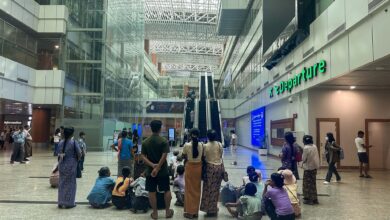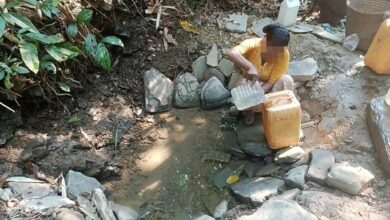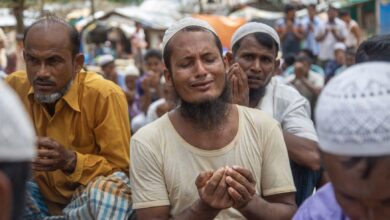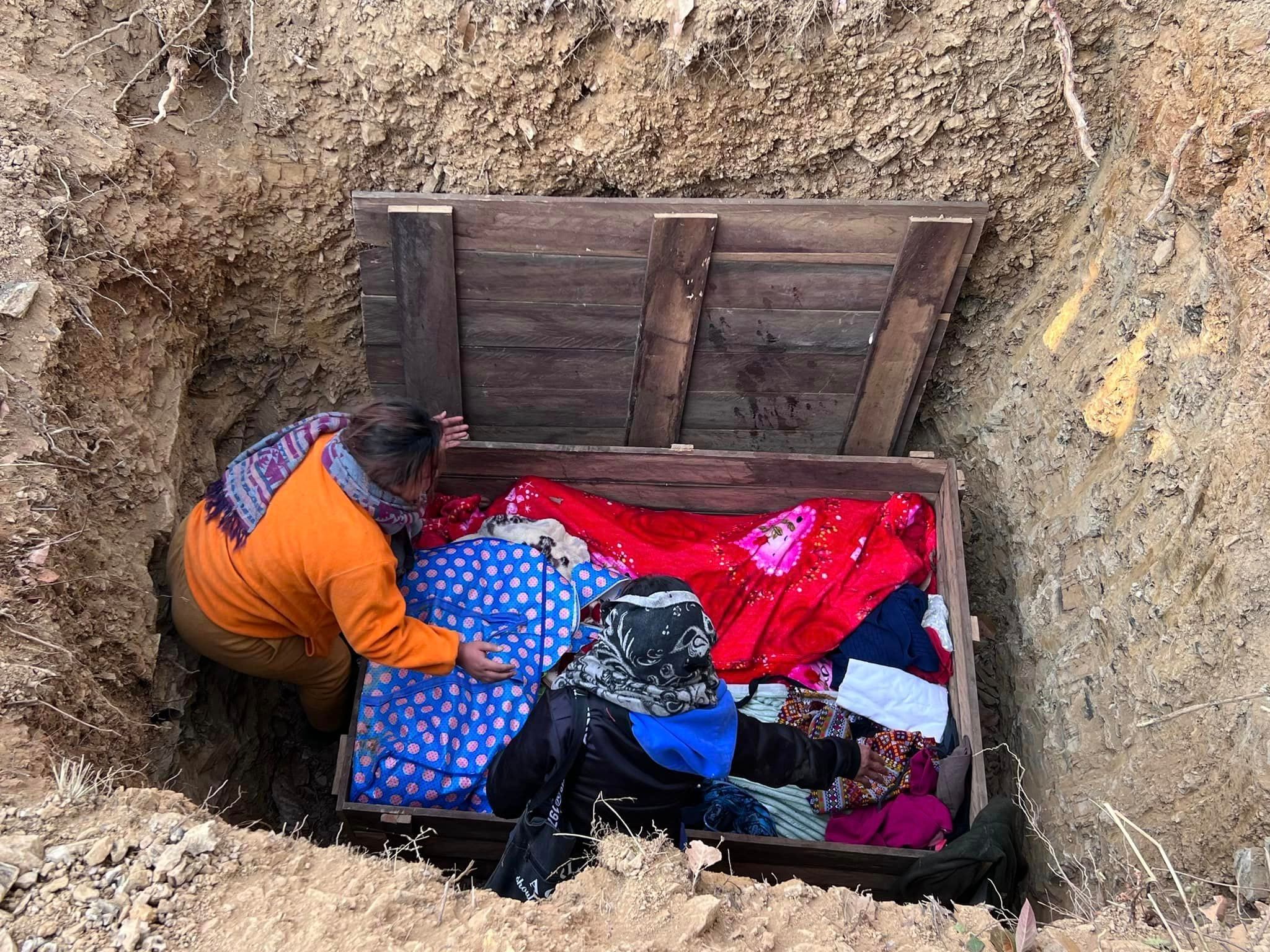
Salai Harry* started looking for members of his family as soon as he heard a loud bang and saw a cloud of smoke rise from his home village of Khuafo, in Chin State’s Thantlang Township, on the morning of March 30. But when he reached his house, he could only find his daughter and his mother-in-law. His wife wasn’t there, because she had gone to do some shopping.
But before he could go look for her, a man approached his home carrying someone on his back. It was Salai Harry’s wife.
“Her pants were torn and the fabric was dangling from her legs. I could see right away that she was badly injured,” he recalled, his voice heavy with sadness.
Khuafo is a small village of around 70 households, located less than 10km north of the town of Thantlang. But last week, it suffered the worst airstrike casualties in Chin State in the two years since the military seized power in February 2021.
Initial reports suggested that at least 10 people had been killed, but that was later revised to nine, including five children. Another 11 were injured.
In addition to the village’s 300 or so regular inhabitants, there were also many displaced people living in Khuafo at the time of the incident. It was considered safe because there were no armed groups based in the immediate area.
It was not unusual, however, to hear junta fighter jets or helicopters pass overhead, en route to targets some distance away. That’s why no one paid much attention to the military jet that flew over the village at around 9:30am that morning.
“Everyone could see it, but nobody tried to flee, because it was a normal thing around here,” said Salai Harry.
But then, less than half an hour later, two more jets could be heard flying towards the village. This time, however, the familiar sound was accompanied by loud booms, as the aircraft dropped their payloads of explosives.
“The two fighter jets dropped their bombs just before 10am. All of the casualties were civilians, and there was no fighting in the area at all. We still don’t know why they did it,” said Salai Harry.
Consumed by fire
According to groups monitoring the situation in Chin State, the junta used two Russian-made Yak-130 fighter jets to drop a total of nine bombs on Khuafo on March 30. They also reportedly strafed the village with machine guns.
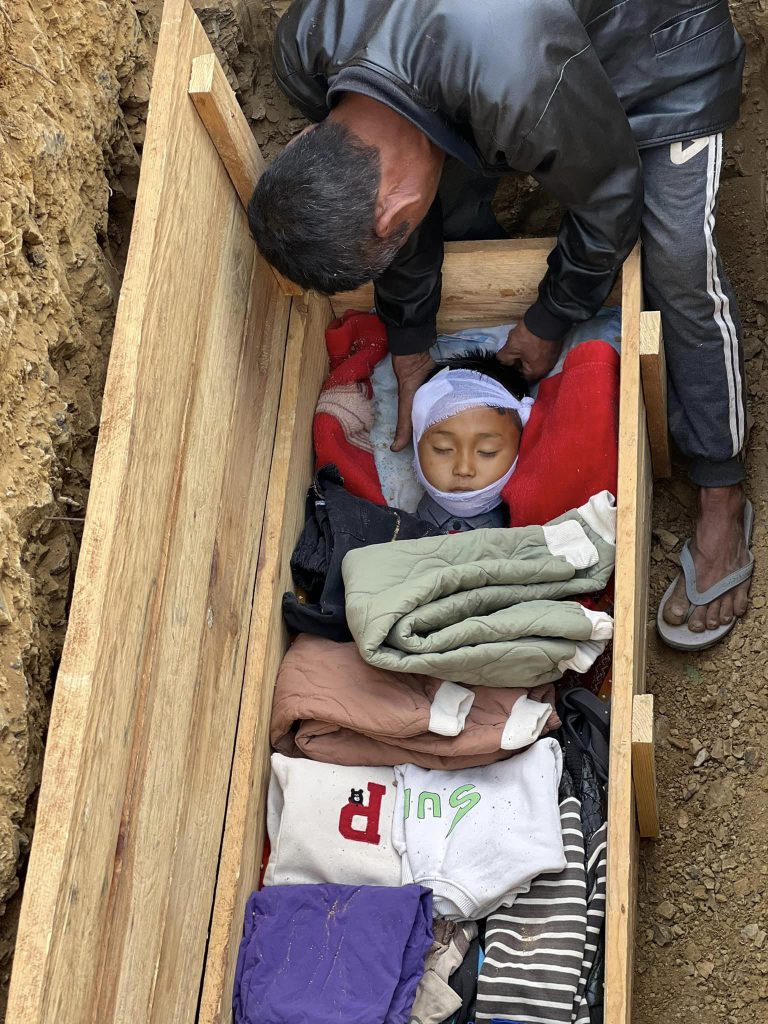
Five of those who died in the attack were minors, including two children under the age of 10.
Eight of the victims were killed instantly: sisters Nu Sung Hlei Cuai, 30, and Nu Ngun Dawt, 28; Nu Len Zi, 40, and her 16-year-old daughter, Mai Sofia; Pa Hmet Lain, 20, and his wife, Nu Par Tha Lang, 18; Pa Van Duh, 6; and Pa Siang Cung Biak, 9. Another victim, 17-year-old Salai Ven Cem, died of his burn injuries two days later.
In addition, the airstrike also destroyed 11 houses and two churches, according to residents.
One of the bombs landed on a house that also served as a village shop. Fuel was stored there, resulting in a huge explosion that killed its owners—the sisters Nu Sung Hlei Cuai and Nu Ngun Dawt—and a young girl working there as an assistant.
“All three people inside the shop were consumed by fire. Two men who were also there managed to get out, but they had burns all over their bodies,” said Salai Harry, whose wife was also at the shop at the time.
His wife survived the explosion, but suffered serious burns, as well as shrapnel injuries to her legs. It took nearly a full day to get her to a clinic where she could receive medical attention, but her injuries were so severe that she had to be sent to another doctor.
This took another full night of travel, by which time her wounds had begun to fester. In the end, doctors were able to remove the shrapnel and save her legs, although she is unlikely to ever fully recover, and she will still need months of treatment, said Salai Harry.
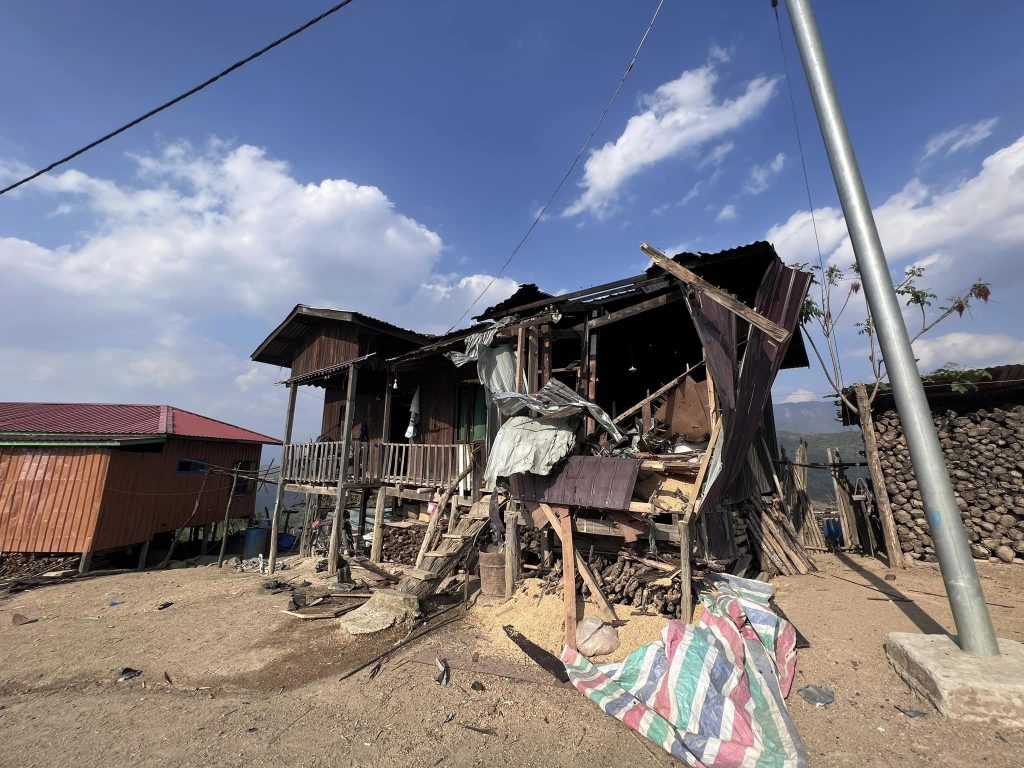
‘A stupid assumption’
Thantlang was the scene of major battles toward the end of the first year after the coup. Arson attacks by regime forces left the town in ruins, forcing its entire population to flee.
In early February of this year, less than a week after the regime placed the township under martial law, resistance forces overran a police station in the town. Since then, the junta has fought back hard to reclaim control.
According to a report released on March 31 by the Thantlang chapter of the Chinland Defence Force (CDF), one of the groups involved in the fighting, the regime carried out a total of 112 airstrikes in the township in the first three months of this year.
This has resulted in renewed calls for international intervention to prevent further loss of life and property.
“The United Nations could impose a no-fly zone to prevent the military from killing innocent civilians. The international community must take immediate action to stop this,” Man Herald, the spokesperson for the Chin Human Rights Organisation, told Myanmar Now.
On March 27, which Myanmar’s military commemorates as Armed Forces Day, the leader of the coup regime, Min Aung Hlaing, vowed to intensify efforts to crush resistance to his rule. He also singled ethnic armed groups that have supported anti-regime groups formed since the military takeover.
However, Salai Htet Ni, the spokesperson for one such ethnic armed group, the Chin National Army/Front, noted that the attack on Khuafo signalled that the regime seems intent on continuing with its strategy of targeting civilians in an effort to drive a wedge between them and the resistance forces.
“They’re just deliberately targeting civilians. They’re not even trying to hide it anymore,” he said.
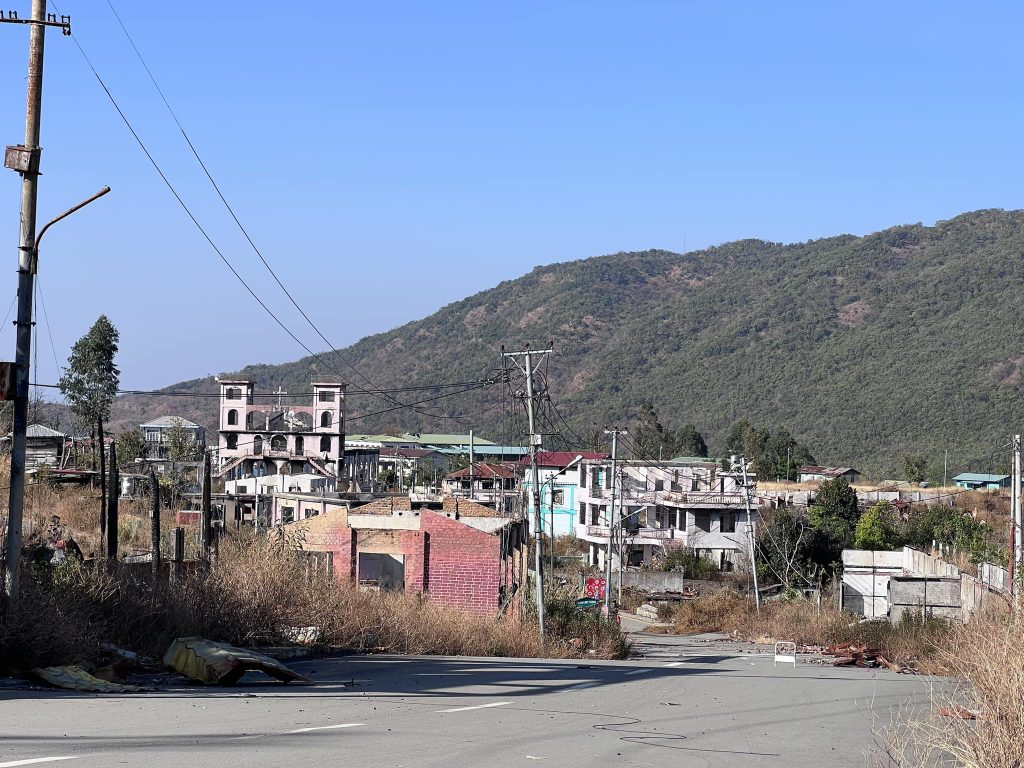
Salai Isaac Khen, a patron of the Interim Chin National Consultative Council, which also seeks to end military rule in Myanmar, denounced such tactics as “stupid.”
“They commit such heinous acts thinking the public will become afraid of them and stop supporting those opposed to them. But it’s such a stupid assumption to make. The Chin public is still standing strong against the military’s oppression,” he said.
For now, however, safety remains the most important concern of Khuafo residents. Few have returned to their homes, with most, including Salai Harry’s daughter and mother-in-law, still sheltering in other villages.
But for Salai Harry, the lesson of the attack on Khuafo is that no one is safe anywhere in Chin State as long as the military remains in power.
“We can’t just stand by and watch anymore. We need to fight back,” he said.
*Names have been changed for the safety of sources.
